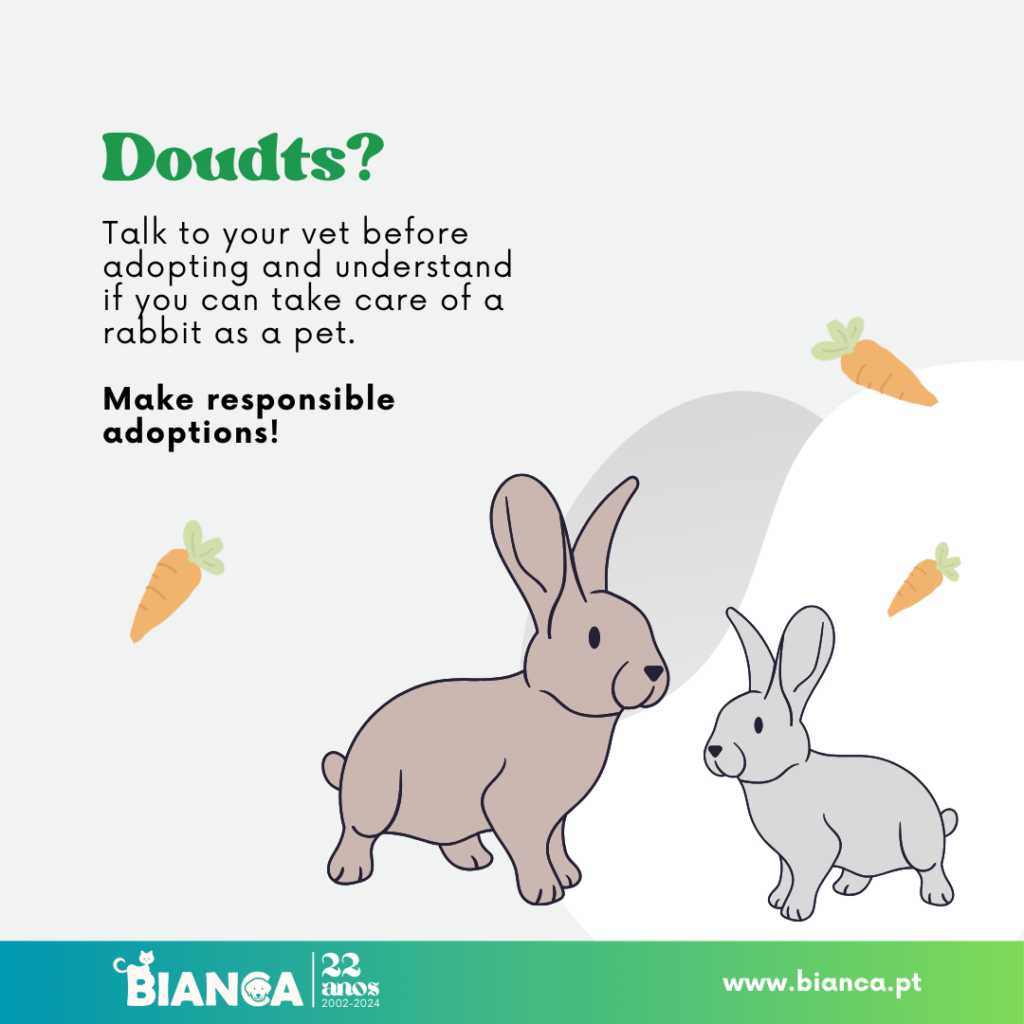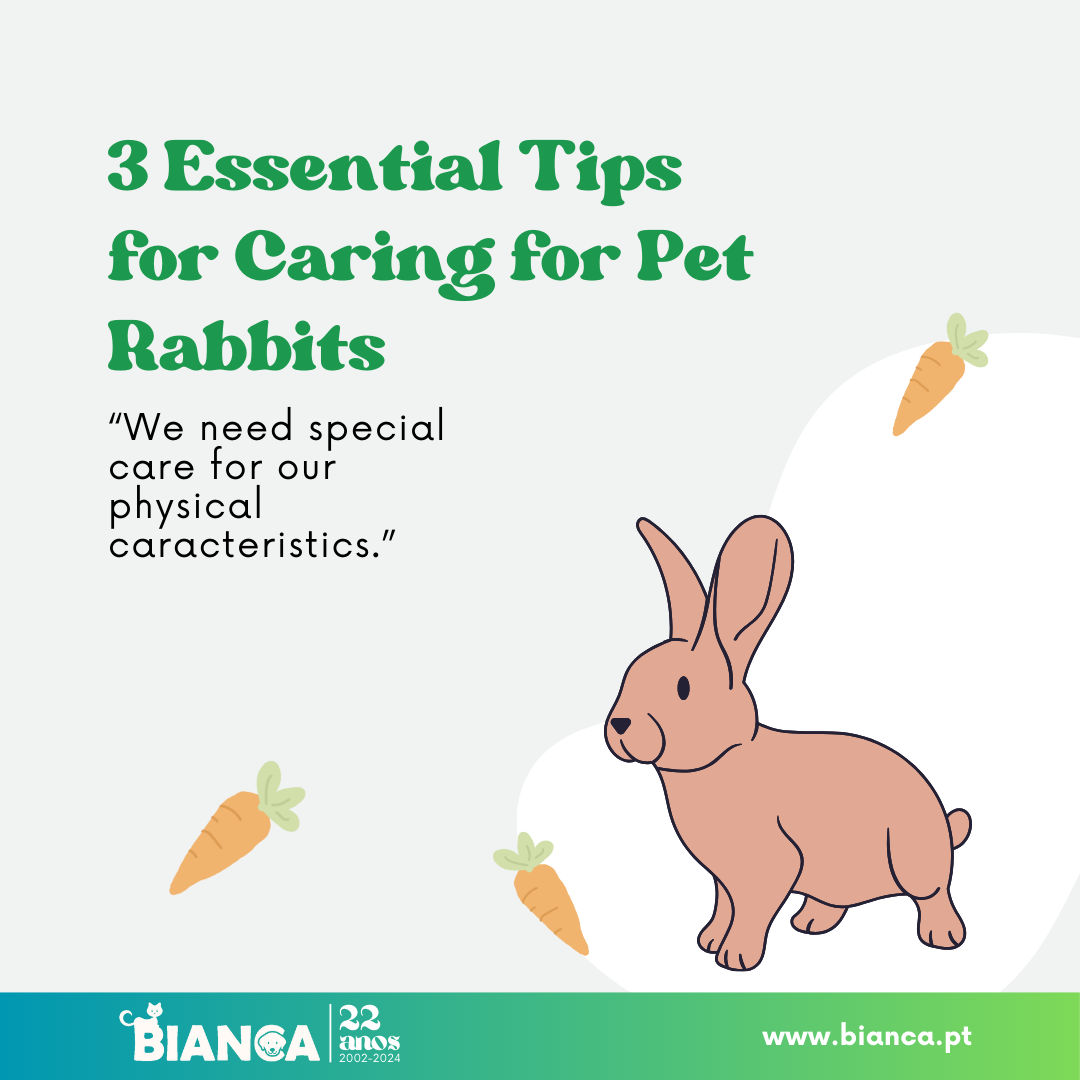Thinking of adopting a pet rabbit?
Learn how to care for one and what a pet rabbit requires…
Balanced Diet
A healthy rabbit needs a balanced diet. Hay should make up about 80% of your rabbit’s daily diet, as it is rich in essential fibers for digestive health. Offer fresh hay every day. Supplement with a small amount of fresh vegetables (such as romaine lettuce, parsley, and endive) and a limited portion of rabbit-specific pellets—these can be bought at supermarkets or specialty stores.
Avoid foods high in sugars and carbohydrates, such as carrots and fruits, offering them only as occasional treats.
Adequate Space and Exercise
Rabbits are active animals that need space to move and explore. Provide a spacious cage or, even better, an enclosure that allows your rabbit to hop and run freely. Ideally, the area should be at least 3 square meters for a medium-sized rabbit. Additionally, allow your rabbit daily time outside the cage in a safe, supervised environment. This not only provides physical exercise but also mental stimulation, which is essential for the animal’s well-being.
Keep in mind that rabbits are rodents, so ensure electrical cables and wires are out of reach.
Watch out for furniture and various objects while the rabbit is loose to prevent it from chewing on unwanted items.
Rabbits need exercise, so they should be allowed to move freely every day to avoid negative and compulsive behaviors caused by movement deprivation.
Regular Veterinary Care
Regular visits to a vet specializing in exotic animals are crucial for keeping your rabbit healthy. Schedule annual check-ups to assess overall health, teeth (which grow continuously), and nails. Keep vaccinations up to date, especially against myxomatosis and viral hemorrhagic disease, among others.
In some cases, teeth may need to be trimmed regularly, so pay attention to their growth. Talk to your vet and ask any questions you may have.
Additionally, consider spaying or neutering your rabbit, which not only prevents unwanted litters but also reduces the risk of certain cancers and can improve the animal’s behavior.
Remember: rabbits are social and sensitive animals that require daily attention, care, and love. With proper care, your rabbit can be a happy and healthy companion for many years.
And Also…
The lifespan of domestic rabbits can vary depending on several factors, including breed, care, diet, and environment. Well-cared-for domestic rabbits have an average lifespan of 8 to 12 years. However, it is not uncommon for some rabbits to live longer under ideal conditions. Keep in mind that smaller breeds tend to live slightly longer than larger breeds.
If you’re thinking of adopting a rabbit, consider whether you’re prepared to care for an animal for a decade!


